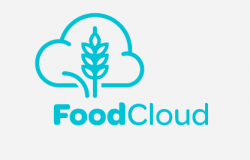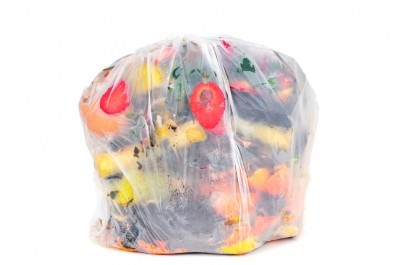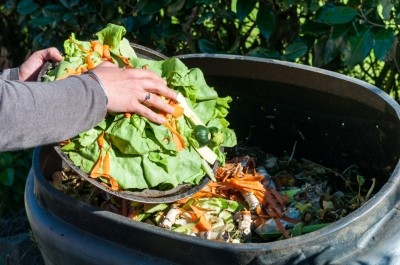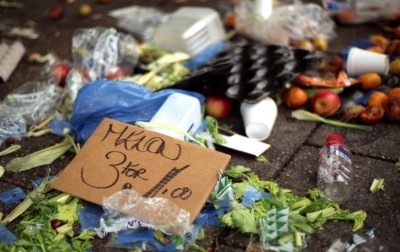Irish 'FoodCloud' app aims to end food waste

Dublin-based start-up FoodCloud offers two separate services: FoodCloud is for retailers while FoodCloud Hubs is for food manufacturers and producers. Both services connect users to local charities like foodbanks and homeless hostels.
The app provides a simple platform to communicate details on what surplus food is available, where and how much is needed.
UK supermarket Tesco and German hard-discounter Aldi have both adopted the service, which is now being used in over 200 stores in Ireland and 800 in the UK. Almost 4000 British charities are receiving food through the app. This would have to rise to 5000 at least to ensure zero food waste from their chain alone, a spokesperson for Tesco told The Guardian.
FoodCloud Hubs, designed to access larger quantities of food by going directly to manufacturers, now has 95 donating partners that have to date given around 1,300 tonnes of food to 120 charities throughout Ireland. The food is logged, tracked and stored on the cloud technology, and redistributed with partner organisation FareShare.
The aim, according to Iseult Ward, FoodCloud’s CEO and co-founder, is to double the amount redistributed over the next year.
Governing food waste in Europe
Currently few international measures have been implemented, but national governments are increasingly changing; the French penalty system (which fines supermarkets for wastage) and Italian incentive system (which rewards them for donating surplus food) both actively encourage waste prevention, and a bill for similar laws is being considered in UK.
Food waste in figures
- Land the size of China, Kazakhstan and Mongolia is used to grow wasted food every year
- 1.3 billion tonnes of food are wasted every year, enough to feed 2bn people
- Food waste costs the EU €143bn per year
- 795 million people do not have enough to eat
However, Ward told us that legal changes will never be enough to prevent waste. “It’s great to have structures in place to support but we also need to have the infrastructure to support and increase supply to the charity sector... it can’t be done in isolation.”
As more legal requirements are implemented, the food industry will be increasingly obligated to prevent waste, which Ward believes will make organisations like FoodCloud essential.
In France for example, supermarkets must have a contractual arrangement with a charity; arranging proper refrigerated transport to keep products fresh and having appropriate storage facilities is also required.
"We have a platform that overcomes a lot of the barriers that retailers face in coordinating and organising redistribution."
Legal changes
Much of the reluctance over redistributing food, which has often resulted in retailers deliberately spoiling surplus, comes from fear of litigation.
FoodCloud also helps create legal contracts which ensures liability on donated food does not rest with the retailer or manufacturer after the food has been donated.
A number of countries already possess laws protecting businesses from liability over donated food, including the 1996 Good Samaritan Pact in the US.
Much of this fear may be unfounded, however, as there is no record of even a single successful legal case over donated food.
FoodCloud receives no government sponsorship and instead charges retailers a service cost, whilst FoodCloud Hubs does receive some grants, and benefiting charities also pay contributions.
The European Commission recently launched a new ‘Platform on Food Losses and Food Waste’ comprised of industry representatives, researchers and charities, of which FoodCloud is one.
!['The FSI is a tool for policymakers and experts to orient their action [...] and for the public to conscientiously adjust their behavior for the food of our health and our planet,' says the report. © iStock](/var/wrbm_gb_food_pharma/storage/images/_aliases/wrbm_medium/7/4/5/4/2814547-1-eng-GB/France-tops-global-food-sustainability-index.jpg)


















